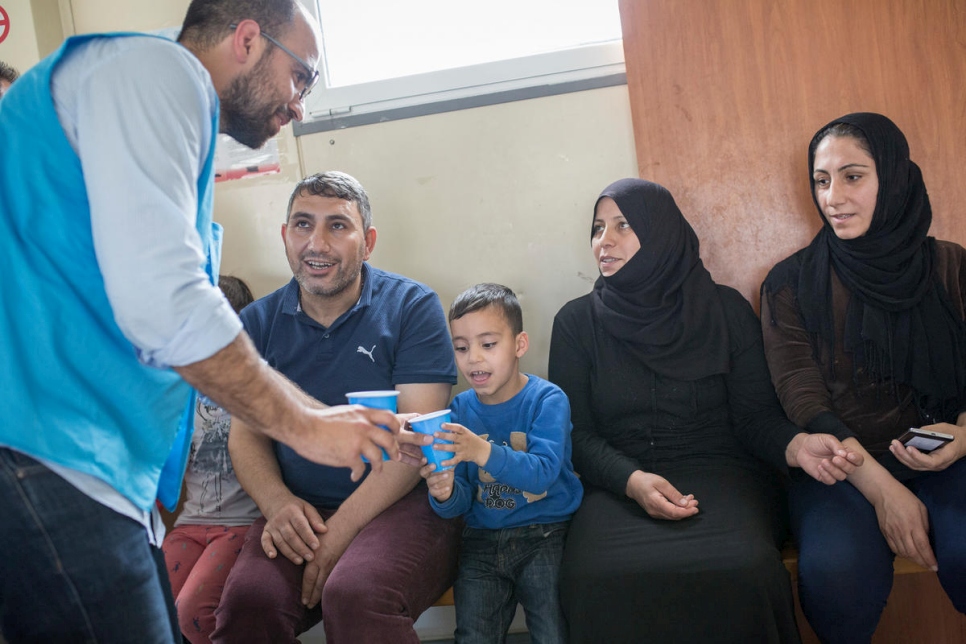UN High Commissioner for Refugees Grandi urges fair and coherent approach to European asylum policies

Newly arrived refugees and migrants at a registration centre in Fylakio, Greece, shortly after they arrived from Turkey. © UNHCR/Socrates Baltagiannis
UN High Commissioner for Refugees Filippo Grandi today urged Denmark and other European countries to work together on coherent asylum policies, and said a race by states to introduce unilateral restrictions risked harming refugees, and Europe itself.
Grandi, who was speaking at the end of a two-day visit to Copenhagen, warned that increasingly restrictive asylum policies and unilateral measures by European States marginalize refugees, and make successful integration more difficult – harming both refugees and the societies hosting them.
“At a time when people are worried about the impact of conflicts in the Middle East and Africa, I understand the concerns of many Europeans. But the solution lies in countries working together. That means working together to provide safety to those who need it – through fair and coherent arrangements in line with the international framework that Europeans helped build.”
During his visit, the High Commissioner met Denmark’s Minister of Foreign Affairs Anders Samuelsen, Minister for Immigration and Integration Inger Støjberg and Minister for Development Coordination Ulla Tørnæs. He also had the honour to meet with her Royal Highness Crown Princess Mary. In addition, he met with refugees and visited the UN City in Copenhagen, where many UN agencies work.
Denmark is an important contributor to humanitarian action globally, including in support of people displaced by war, conflict and persecution. Grandi recognized Denmark as a global partner in refugee protection and solutions, and stressed the need to have the same approach domestically.
A number of countries in Europe, including Denmark, introduced more restrictive measures in the aftermath of the 2015 Mediterranean crisis – affecting family reunification and resettlement of vulnerable refugees, in particular.
“Denmark has traditionally been a leader in resettlement and is a strong and an important partner to UNHCR. By reactivating its resettlement programme, hundreds of the most vulnerable refugees, including for example women, victims of violence, could benefit from much-needed safety and protection, and start to rebuild their lives,” said Grandi.
Countries around the world are currently discussing a Global Compact on Refugees, to be adopted by the United Nations General Assembly later this year. Good European regional and national policies can help shape how refugee situations are managed globally, and show how solidarity and shared responsibility pays dividends all round. Recent proposals to externalize the asylum process, with the aim of shifting responsibility away from Europe’s borders and limiting access to asylum for those arriving in Europe, run counter to these global efforts and must be avoided.
“We need solidarity and cooperation, not responsibility-shifting. Nine out of ten forcibly displaced people are not in Europe, but in their own countries or neighbouring ones,” Grandi added. “When Europe closes its doors, the compassion and solidarity of those countries is bound to falter.”
For more information on this topic, please contact:
- In Denmark, Elisabeth Arnsdorf-Haslund, haslund@unhcr.org, +45 21 42 55 64
- In Geneva, Charlie Yaxley,yaxley@unhcr.org, +41 79 58 08 702
